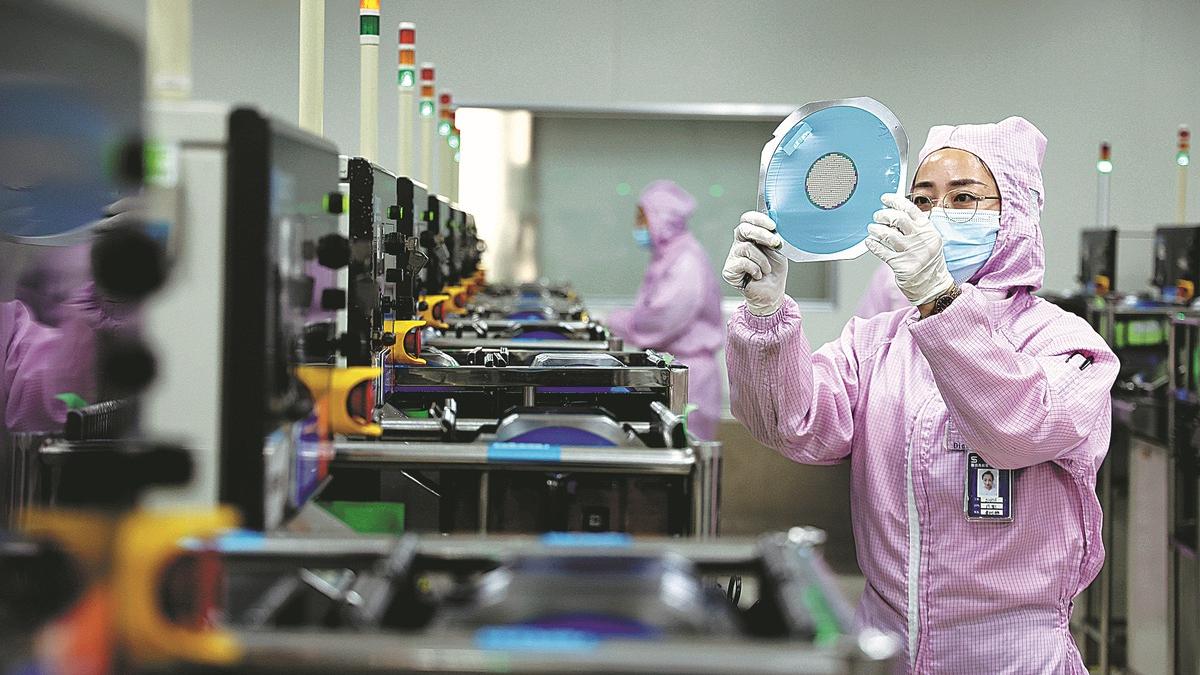 This undated photo shows a staff member working on the production line of a semiconductor manufacturer in Binzhou, Shandong province. (CHU BAORUI / FOR CHINA DAILY)
This undated photo shows a staff member working on the production line of a semiconductor manufacturer in Binzhou, Shandong province. (CHU BAORUI / FOR CHINA DAILY)
BEIJING - China's top economic planner on Tuesday unveiled a series of detailed measures including tax reductions and cutting red tape to boost the private economy after a general guideline was released last month.
The measures ranging from fair market access to stronger financial support and better government services are designed to tackle prominent problems facing private enterprises and boost their confidence, according to a notice from the National Development and Reform Commission (NDRC) and several other government agencies.
Private firms will be encouraged to participate in major national projects that are profitable and mature, issue Real Estate Investment Trust products for infrastructure projects, and lead technological programs in key areas, such as industrial software and artificial intelligence
Private firms will be encouraged to participate in major national projects that are profitable and mature, issue Real Estate Investment Trust products for infrastructure projects, and lead technological programs in key areas, such as industrial software and artificial intelligence.
ALSO READ: China vows to spur growth of private economy
"Green light" investment cases will continue to be published to promote the sound development of the platform economy.
More efforts will be made to eliminate market access barriers for private companies, NDRC official Wang Shancheng told a press conference on Tuesday. Wang said the NDRC will start the revision of the country's fifth negative list for market access in a timely manner and make the list shorter to create a fairer environment.
According to the notice, companies will enjoy an easier process of tax reduction in research and development spending, shorter time in export rebates, and strengthened inclusive financial support.
China's newly-implemented tax refunds, as well as tax and fee cuts and deferrals, for micro and small private firms and self-employed households, reached 704.9 billion yuan (about $98.89 billion) in the first half of 2023, data from the State Taxation Administration showed.
In terms of legal guarantees, regulations and official documents violating the principle of equality for enterprises of various types of ownership will be abolished to protect the development of the private economy, according to the notice.
READ MORE: High-level agenda urged to shore up China's private economy
The government will improve its services to help private businesses solve difficulties, cut red tape in administrative approval, clear arrears owed to small and medium-sized enterprises, and actively engage with entrepreneurs during the policymaking process.
The Communist Party of China Central Committee and the State Council issued a guideline on boosting the growth of the private economy last month, promising to improve the business environment, enhance policy support, and strengthen the legal guarantee for its development.
The private economy plays an important role in China's economic development as it contributes approximately 50 percent of the country's tax revenue, 60 percent of GDP, 70 percent of technological innovation, and accounts for 80 percent of urban employment.


